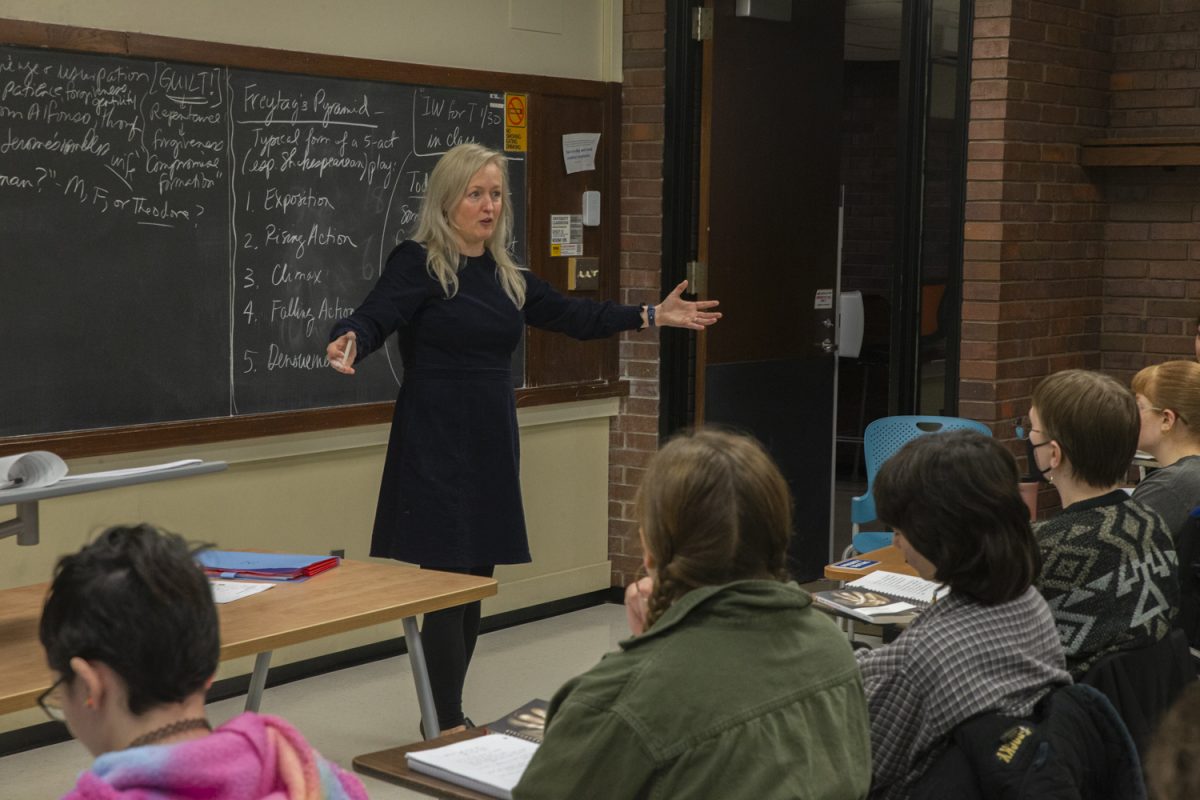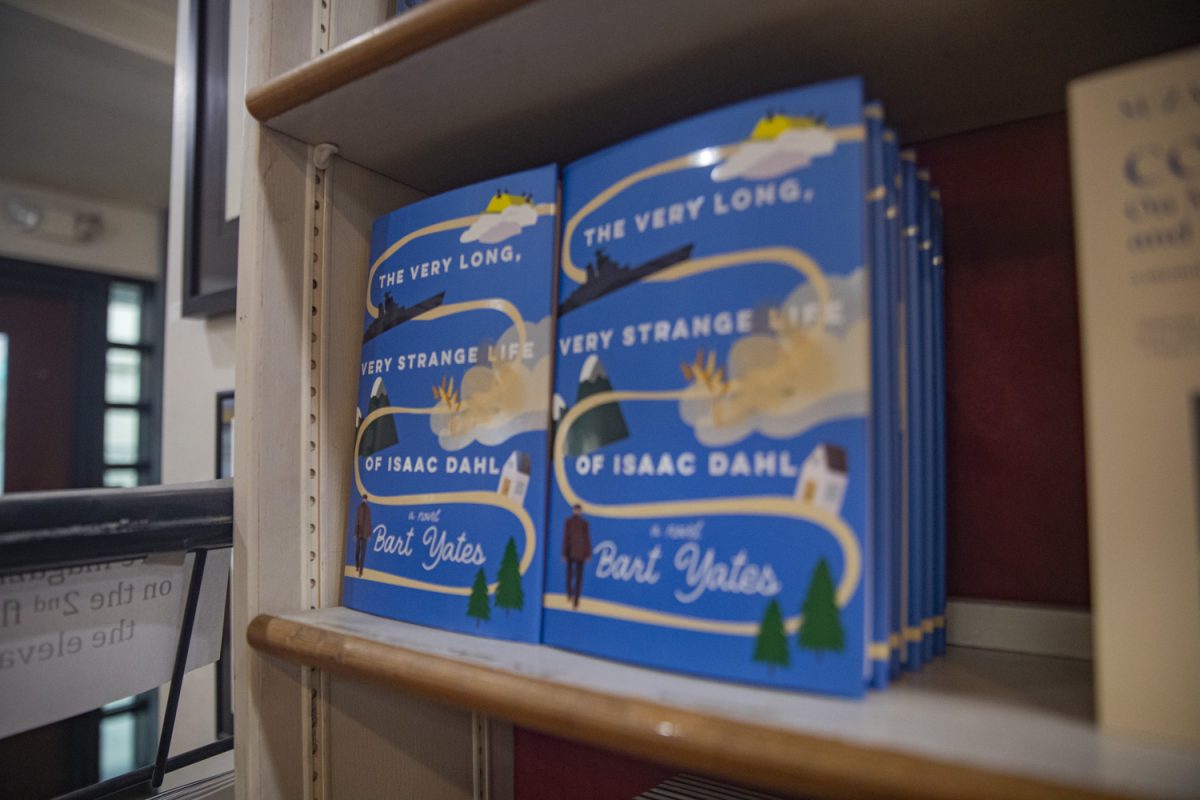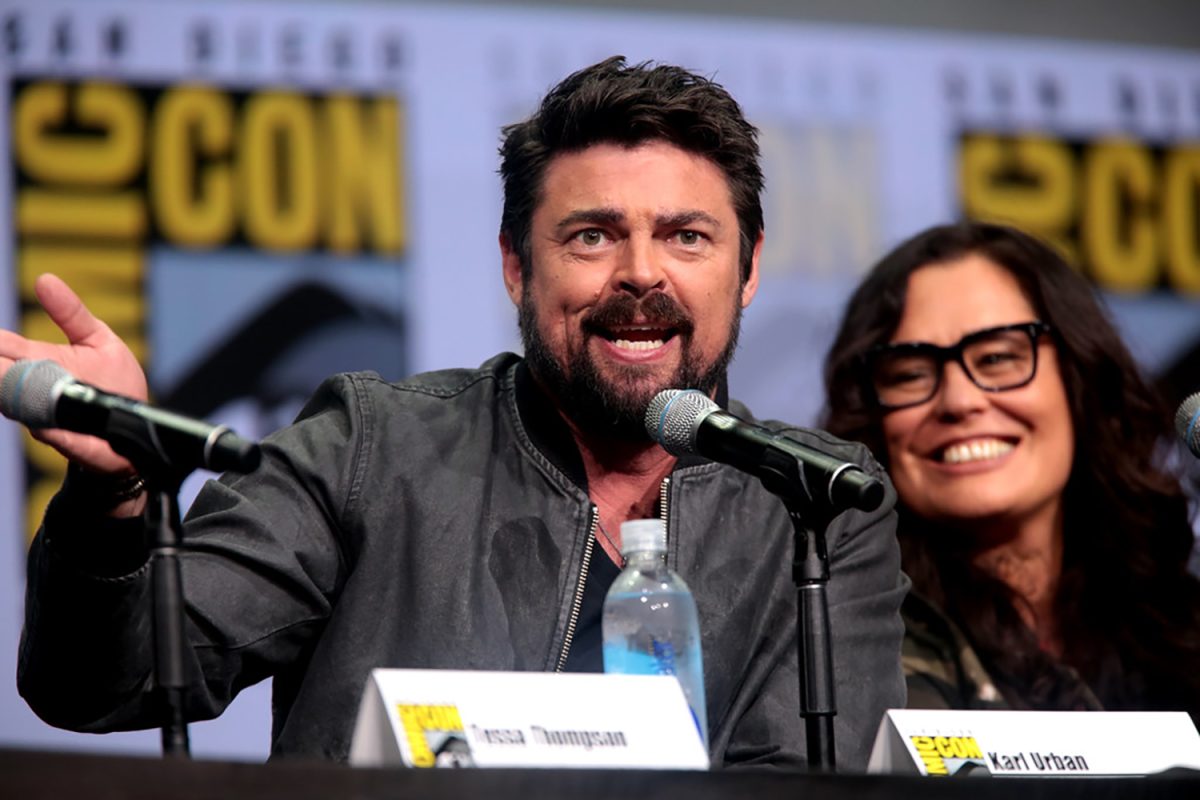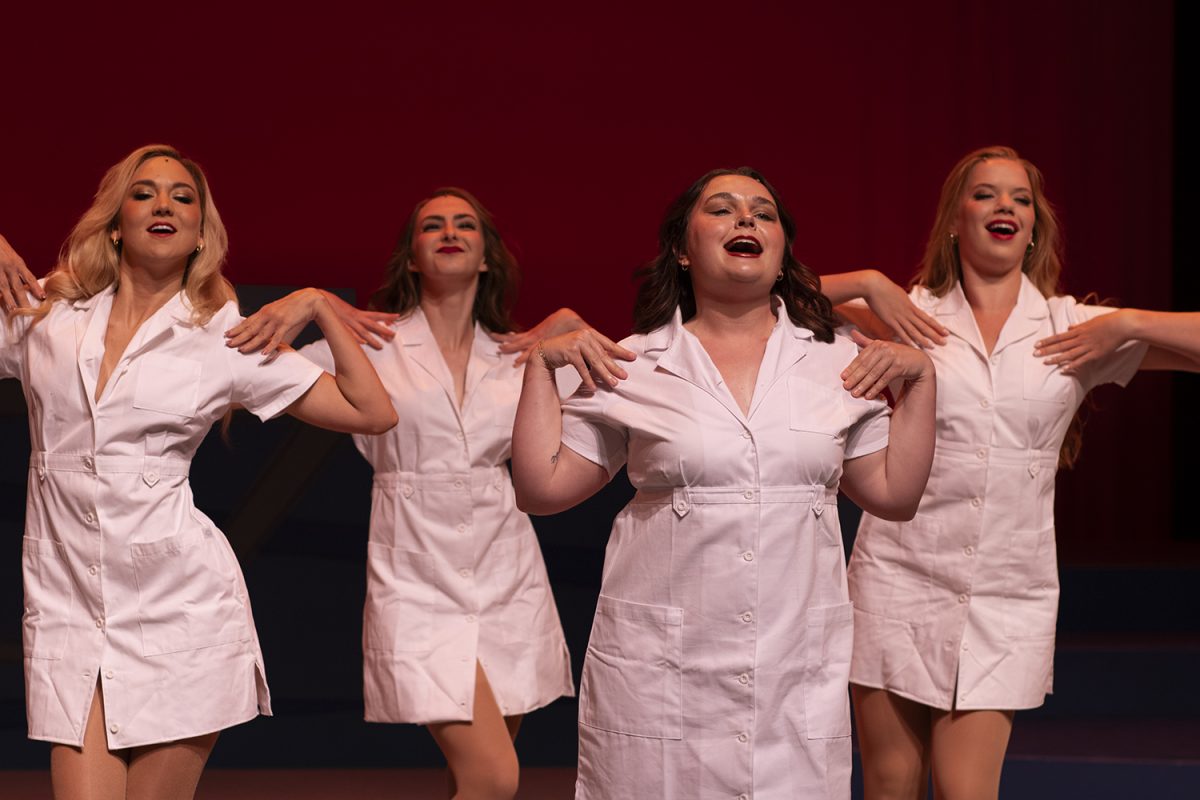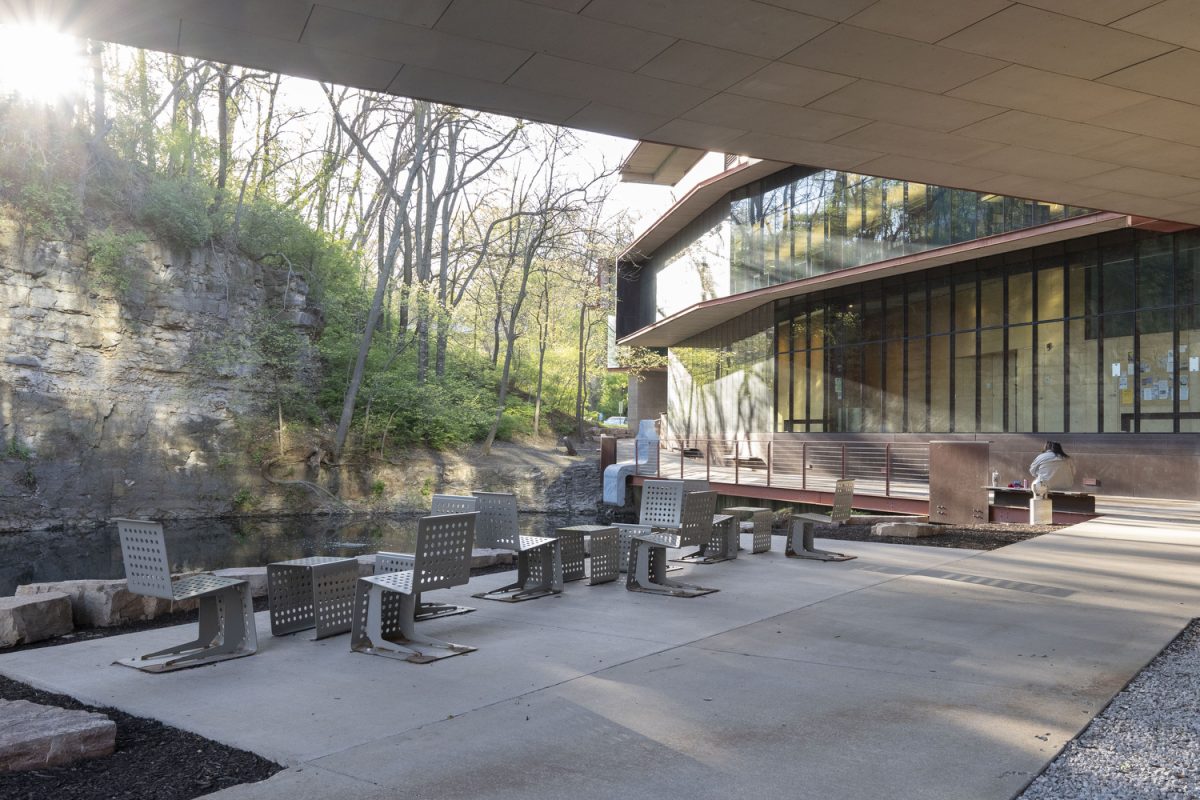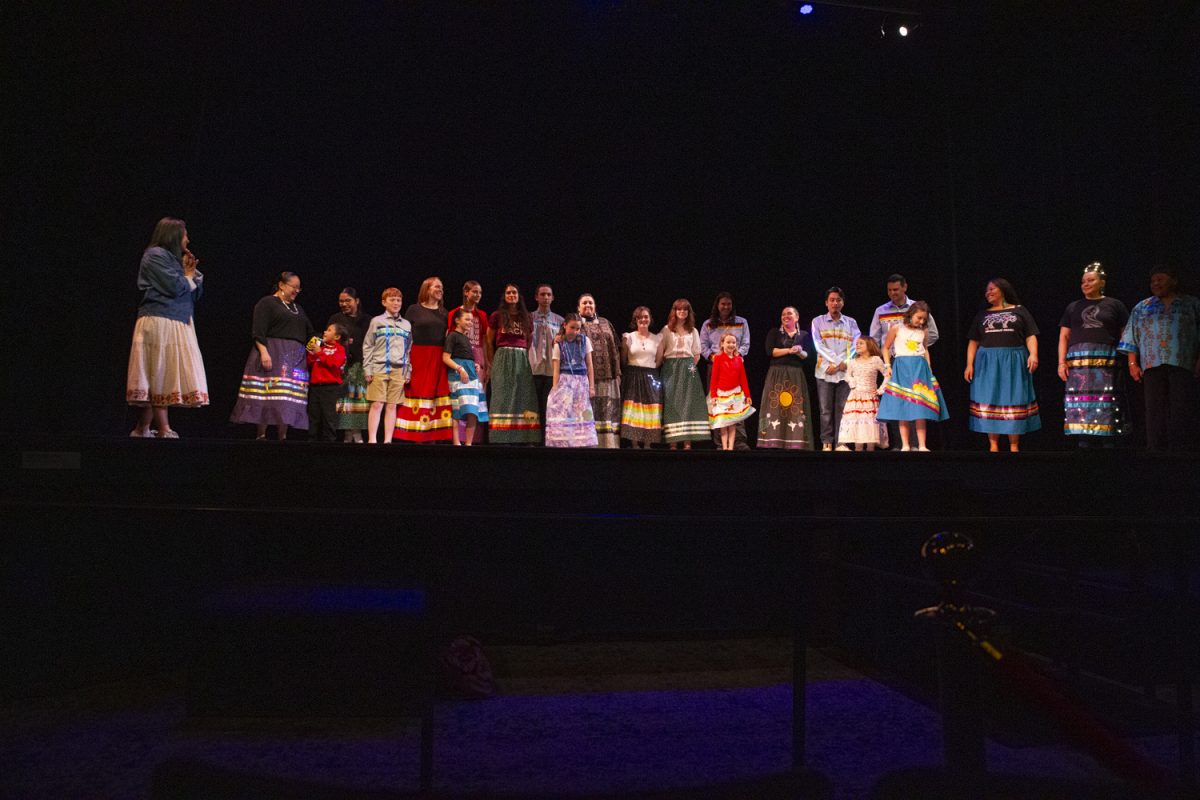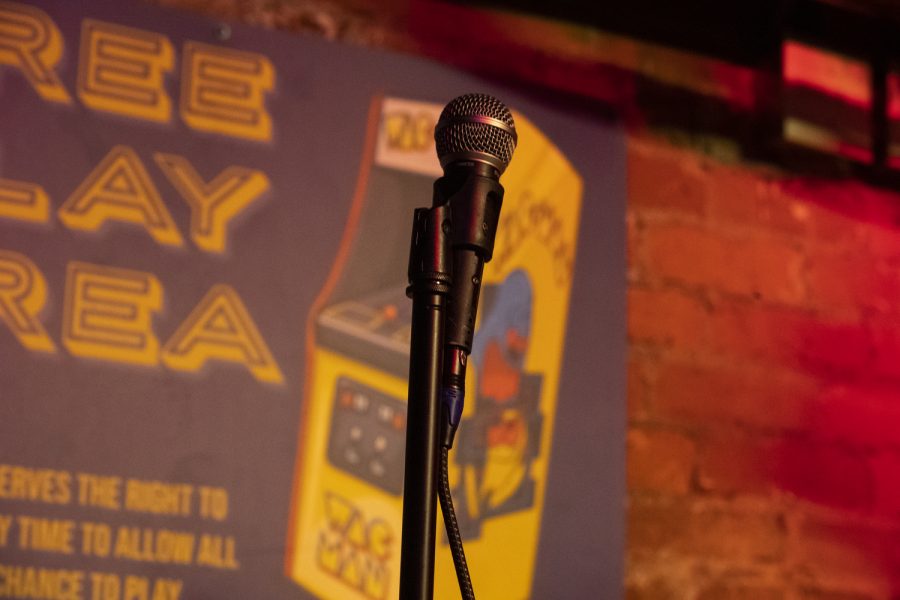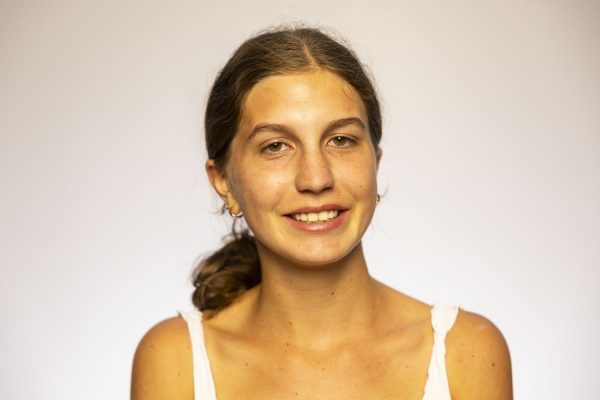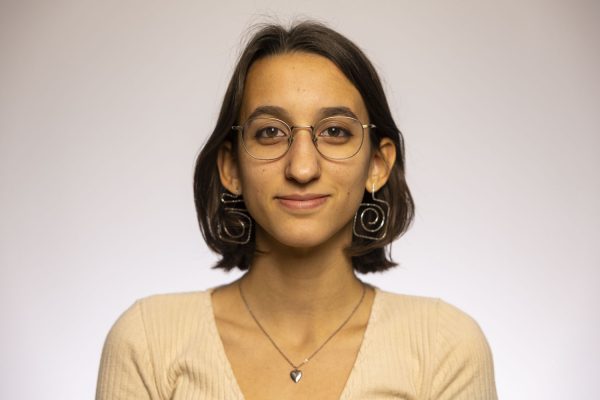Ranked the top writing university in the nation, the University of Iowa’s professors of English and creative writing offer a plethora of unique courses, tackling special topics both in the classroom and across the globe.
One of these courses, “Gothic Fiction”, taught by professor Lori Branch, is offered for the spring 2024 semester. A highly sought-after class, many students had to waitlist before enrolling.
Branch, an author focused on the intersection of literature and secularism, shared she decided to teach a “Gothic Fiction” course because of its roots in the 18th century, a period she specializes in.
The Gothic period occurred from the late 1700s into the early 1800s. Books written during the time included an aesthetic of fear and horror.
“I designed this course. It’s like my own kind of baby, so to speak,” Branch said. “I really love it.”
Students lucky enough to snag a seat in the course have spent their first few weeks studying the history of the genre from the very first English-language Gothic novel, “The Castle of Otranto,” published in 1764, to more circulated works such as “Dracula.”
Branch cited the class’ popularity due in part to students’ recognition of the titles listed on the syllabus. However, she said English students were mostly drawn to the class because the books were “scary.”
“[Dracula] still has so much cultural appeal and power today,” Branch said. “I mean, you can read it in 2024 and stay up late at night. Your hair is gonna stand up, and it’s gonna be crazy, and it still has this imaginative power over us.”
Third-year student Hannah Cargo is an English and creative writing major and an environmental policy and planning major. Currently, she is one of the 48 students enrolled in “Gothic Fiction”.
Though studying timeless pieces isn’t new to any English class curriculum, Cargo said the class is sought-after among her peers because the Gothic, horror-based topics covered are often a first for many student writers.
“[The genre] deals with questions like, ‘What happens when we die?’, ‘How do I feel in relation to society?’ ‘What does God think of this behavior or these people or me?’” Cargo said. “These sorts of questions are sort of applicable to everyone, even if we are not in 1700s Britain, so those can easily be applied to other people’s writing.”
Besides “Gothic Fiction,” Cargo has also taken classes on literary genres ranging from youth-adult to science fiction during her time at the UI.
Cargo attributed the program’s strength to the wide variety of topics and classes offered, allowing English majors to tailor their schedules to their interests.
“[The courses] range from the Bible to Gothic literature… to American resistance literature,” Cargo said. “It kind of lets you cherry-pick and choose what you want to do learning-wise.”
Cargo also believes the writing program at the UI is so strong because each class focuses on one specific topic and hones in on that subject.
“What brought me here was the creative writing program…I was able to see the variety of those classes.,” Cargo said. “Not only is it a creative writing program, but it’s bolstered by all these years of acclaimed writers and a workshop.”
Besides “Gothic Fiction”, other unique English and creative writing classes include classes on medieval fantasies, realism in literature, and stories of women as political and social activists.
One such class even includes traveling abroad. Over winter break, professor Stephen Voyce took students on a winter writing trip to Greece.
During the trip, Voyce said students explored Greece and found inspiration for their open-ended writing assignments.
“I think it’s always going to be a radically eye-opening experience just to go to a different country with a different language with different customs,” Voyce said. “I consider that a part of the learning too. I think that those are life skills that you get from a course like this.”
Currently, there are three study-abroad location options for English and creative writing students: Dublin, London, and Greece. The trip to Greece focuses on the influence of Greek mythology on modern literature. For the programs, any student can
To provide unique classes such as “Gothic Fiction” and this winter’s writing trip to Greece, the English and creative writing departments focus on the people involved in the program and their interests.
While English classes are separate from creative writing classes, there exists overlap between them. Examples of creative writing-specific classes include While, some English-specific classes are
According to Blaine Greteman, head of the English department, only a few classes are required for students including “Foundations of the English Major.” The rest of the curriculum focuses on discussion-oriented classes and can be catered to specific student interests.
To choose what English classes to offer for an upcoming semester, the faculty first submit the classes they want to teach. Then, the department makes sure the classes fulfill students’ curriculum and degree requirements and include a wide span of offerings.
Greteman said this process allows faculty to teach what they are passionate about and lets the department provide innovative course offerings for students.
“It creates a better student experience too, because you get to partner students with faculty who are really excited and enthusiastic about the things they’re teaching,” Greteman said.
Lan Samanta Chang, the director of the Iowa Writers’ Workshop, said there is a similar process for choosing classes and that they are often based on topics the teaching assistants were passionate about.
“In addition to taking a more general class such as creative writing, it can be very valuable for students who are interested in particular kinds of writing or particular authors or worlds, particular methods or genres to be in a group of writers who share their enthusiasm,” Chang said.
First-year Alyssa Santoleri is one student who chose the UI specifically because of its creative writing program.
An English and creative writing major on the publishing track, Santoleri is excited to take more fiction-writing classes in the future, and aims to someday become a fiction editor or writer.
Like Cargo, Santoleri said the large span of genres and topics provided allows students to fully explore the depths of literature and writing during their time at UI.
“It allows you to explore topics that for you are important,” Santoleri said. “It definitely provides a lot more choice and options instead of just sticking you in one specific class and being like, that’s it, that’s all you get to learn.”
She also said the UI puts a lot of care into supporting them in the type of writing students want to produce.
“You can go so many different ways in this program,” Santoleri said. “You don’t have a set one thing to do, and so I think it’s so highly ranked because there’s not one specific way to be an English major here.”
Through the classes offered in the program, Greteman said he wants English and creative writing students to get a comprehensive sense of all the diversity literature and writing has to offer.
“Our goal, ultimately, is just to introduce students to that breadth so that they become lifelong, capable students of literature and writers,” Greteman said.





